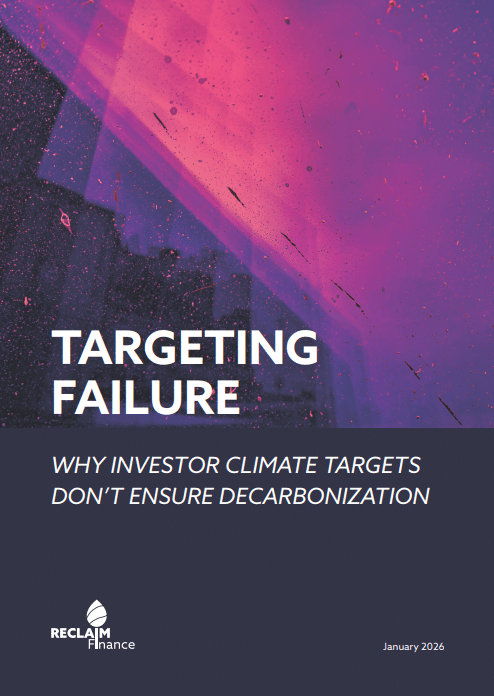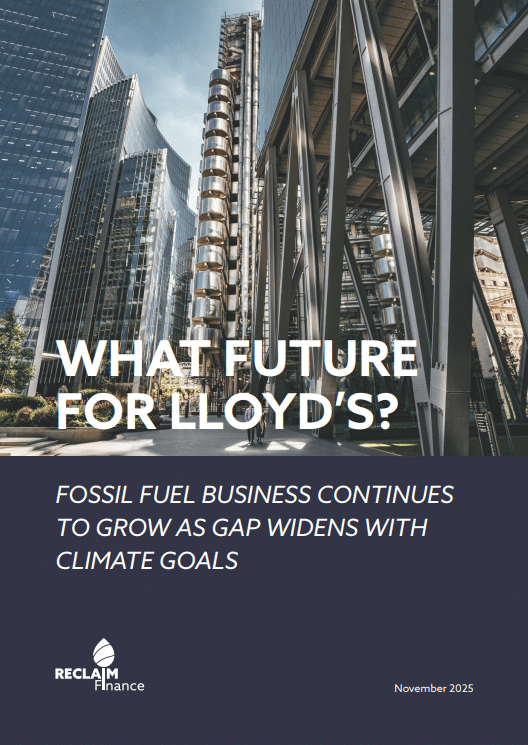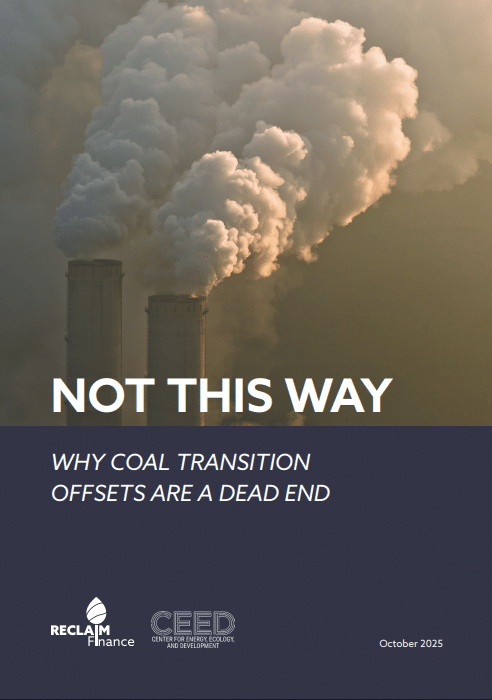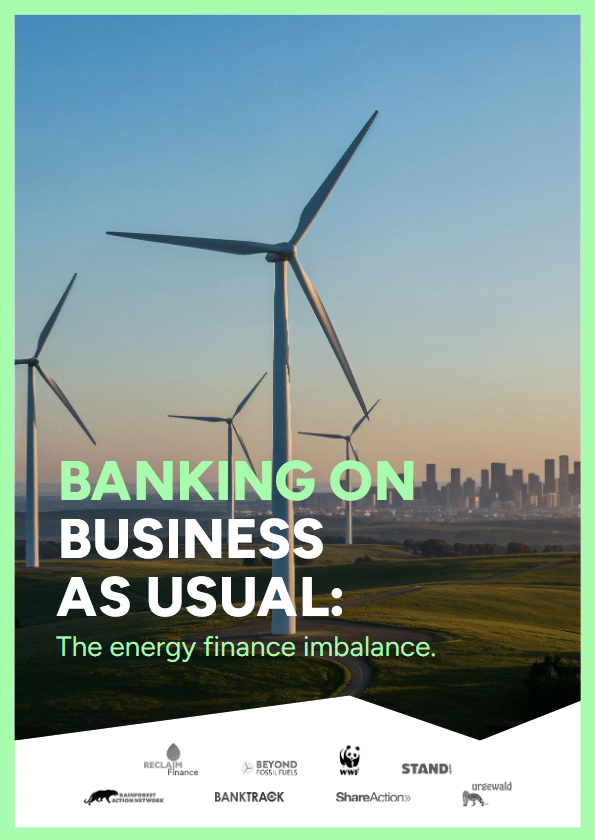Our reports
Targeting failure: why investor climate targets don’t ensure decarbonization
Investors have increasingly adopted climate targets in response to pressure to address climate-related financial risks and to transition to a net-zero economy. This report assesses the robustness, ambition, and transparency of these targets across a sample of 83 global investors. We examined four types of investor targets: emissions, alignment, engagement, [...]
Banking on Coal in South and Southeast Asia: The Network Behind a Dirty Industry
While coal use is declining across most high-income countries, South and Southeast Asia remain major hotspots for new projects. Although China still leads globally, nearly all remaining expansion is concentrated in seven key countries — India, Indonesia, Pakistan, Bangladesh, Vietnam, Laos, and the Philippines — where 216 GW of [...]
Credit agricole: a double standard between banking and asset management on climate issues
More than a year after Crédit Agricole announced a measure recognizing the scientific imperative to end oil and gas expansion, Reclaim Finance analyzed the impact this announcement had on the French banking group's activities as a whole. This note focuses on the practices of Amundi, the flagship subsidiary of the [...]
What future for Lloyd’s?
Lloyd's of London, the world’s largest global center for fossil fuel insurance, is bucking the global trend by continuing to grow its fossil fuel business according to new analysis from Reclaim Finance, leaving the Lloyd's marketplace increasingly misaligned with climate goals. Key findings: Growth rate of Lloyd's [...]
Not This Way: Why Coal Transition Offsets are a Dead End
Using carbon offsets to shut down coal plants, as proposed by some governments, banks and others, is likely to fail to reduce global emissions. It will likely replicate all the past problems with offsets, including the generation of huge amounts of fake credits, and will allow polluters to continue [...]
Banking on business as usual: The energy finance imbalance
Climate change is accelerating, fueled by an energy system still dominated by fossil fuels. The current impacts on human societies and ecosystems serve as a daily reminder of the urgent need to act now to prevent irreversible climate tipping points and even more severe consequences. A radical transformation in [...]
Too big to ignore: Uncovering car leasing companies’ inconsistent climate strategies
Rental dominates the distribution and use of new cars in the EU, accounting for more than half of all new vehicles and aiming for almost 70% by 2030. Seven key players control 61% of the rental market and 31% of new registrations. Large fleet operators strongly influence the used [...]
Banking on climate chaos report 2025
While the world’s top scientists from the International Energy Agency (IEA) repeatedly state that there is no need for a single new oil field, tanker, pipeline, or any fossil fuel expansion whatsoever, banks ignore climate risk and increase finance for dirty energy companies expanding their sector. This is amidst [...]
Financing Glencore: European banks still backing coal expansion
Glencore, a top global coal producer, is expanding its thermal and metallurgical coal portfolio, at odds with climate imperatives. While European banks were among the first to adopt policies to restrict coal financing globally, some of them keep playing a critical role in supporting Glencore’s coal expansion. This report [...]
Bank transition plans: a roadmap to nowhere
Transition plans are an essential tool to push financial institutions to break free from short-termism and align their activities with a 1.5°C trajectory. Yet, the first transition planning obligations adopted in the European Union are now threatened by the European Commission’s deregulation drive (“Omnibus” proposal). In this context, Reclaim [...]










